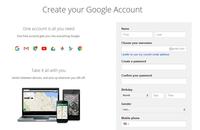Ask the Job Readiness Lab: "I have a criminal record – how do I go about a job search?"
By Annette M.Welcome to "Ask the Job Readiness Lab," a series of blog posts in which we address the questions of job seekers and share our answers with a broader audience. Here our partner, the National Workforce Opportunity Newtork, LLC, provides guidance to returning citizens and other “justice involved” individuals who are embarking on a job search.
I have a criminal background. Am I going to be able to find a job?
Absolutely. Formerly incarcerated individuals and citizens with a criminal background do find jobs, and many go on to successful careers and legitimate business ventures. In fact, an increasing number of employers are open to the idea of hiring returning citizens, and some have gone a step further by starting job-training programs specifically for returning citizens. (Check out Uplift Solutions, associated with Brown’s Super Stores, and Baker Industries.) With an estimated 625,000 citizens released from prison each year (35,000 in Philadelphia alone), we all need to start viewing returning citizens as the asset they are—an untapped talent pool.
What do I need to do to get started on a job search?
First and foremost, you have to set yourself up for a successful job search, and that means joining the digital world. The job-search process has shifted online, so be sure to find access to a computer and the internet. All Free Library of Philadelphia’s neighborhood libraries have public use computers with internet access (you have to sign up for a library card, which is free!), as do many community organizations. If you need to learn basic computer skills, many of these locations also offer free workshops and classes or can set you up with online, self-pacing tutorials. To establish your digital presence, sign up for a free Google account, which will give you an email address, space for storing files in the "cloud" (Google Drive), and other helpful tools such as a calendar and contacts folder.
Next, get an affordable cell phone and service plan so prospective employers are able to reach you. If you are not currently employed, you should check out SafeLinkWireless.com, which provides a free phone along with free minutes and data and inexpensive upgrade plans. If you do not have a computer, you should consider purchasing a smartphone, which will allow you to access the internet from just about anywhere.
And lastly, make sure you have in your possession personal-identification documents, particularly a driver’s license or state photo ID and a Social Security card. These documents are often asked for as part of an employment application. (Our next blog post will provide specific details on how to obtain these important documents at low or no cost.)
I have been out of the workforce for a long time. What do I have to offer an employer?
It’s important that you put a lot of thought into creating a résumé, which is generally a one-page summary of your background. Of course, include any schooling and work experience you had before your time away. Also think about what skills you might have acquired while serving time. For example, if you worked in the prison kitchen, list the specific skills you used—perhaps cooking for large numbers of people, operation of specialized equipment, or supervision of other staff. Also include any credentials or certifications you earned while you were away.
There are many examples online of how others have set up their résumés, including templates that highlight skills and expertise, rather than work history or educational experience. Check out the Free Library’s Bridges, a resource guide of Philadelphia’s services for returning citizens, for some résumé samples. Once you have a draft résumé, have others look it over and ask you questions about what you’ve written, and then fine tune it based on their feedback. Remember, most résumés are reviewed by an employer for only six to eight seconds, so make each second count by clearly highlighting your accomplishments and successes.
I’ve seen job applications ask about a criminal background. How should I answer this question? In general, how open should I be with a prospective employer?
In the city of Philadelphia, it is illegal for most employers to ask about a criminal background during the job application process. Only until a conditional offer of employment has been made can an employer ask this question. (The Fair Chance Hiring Law, informally known as "Ban the Box," will also be the subject of a future blog post.) That said, it is important for individuals to be upfront, open, and honest about their criminal background with employers, not necessarily on their résumé, but in one-on-one conversations with employers, and especially in the job-application process. Being transparent about a criminal background can be a signal of honesty to employer, especially since they will eventually find out about your history anyway if they do a background check or if they decide to Google the candidate’s name.
To prepare for this conversation, think about your "story"—a few succinct but deeply thought-out sentences acknowledging this part of your background and how you hope to move forward now that you are back in the workforce. There is no need to go into specific details about the actual circumstances that led to your incarceration, and refrain from airing gripes or expressing grievances about this time of your life. And practice, practice, practice! Being able to tell your story on the fly—whether it’s to a prospective employer or to someone you bump into on the street—will make your transition that much smoother. REMEMBER: It is not about the past choices and decisions you made, but about the lessons you learned from the journey you have taken.
How can I find employers who are willing to hire individuals with a criminal background?
Many people start their job search with online searching. In addition to the main websites of job postings (Monster.com and Indeed.com, are among the largest), there are websites that specifically publicize openings with "felony friendly" employers, such as JobsForFelons.com and CulinaryAgents.com. There is also 70MillionsJobs.com, a free downloadable app specifically for returning citizens who are looking for work.
Also consider visiting one of the four PA CareerLink Centers, where you can sign up for an account with their Job Gateway system. Additionally, the National Workforce Opportunity Network hosts a weekly workshop just for returning citizens who are looking for employment (view this flyer for more details). Attending this workshop is a great way for returning citizens to get more guidance and support on conducting a successful job search and to learn about available education and training opportunities for career advancement.
The Southwest Job Readiness Labs are part of the Paschalville Partnership, a Free Library-led collaboration of 11 organizations working to transform services for job seekers in Southwest Philadelphia. The Job Readiness Labs provide free computer and internet access and one-on-one assistance to job seekers at two locations: Paschalville Library and Southwest CDC. Additionally, the partnership connects job seekers with deeper services, including skills training, adult basic education, ESL instruction, and financial counseling. This program is made possible in part by the Institute of Museum and Library Services.
Have a question for Free Library staff? Please submit it to our Ask a Librarian page and receive a response within two business days.



